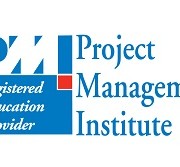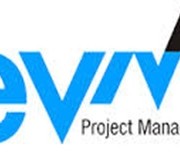Best TIPS for the PMP Exam
The PMP® exam has a lot of situational questions, i.e. we should answer many questions about the real behavior in project management so we need to figure out and try to identify «What is the best thing you could do«, «What is following action to do…» or «You therefore…» .
We must therefore assume that certain «conditions» are being fulfilled in such situations, for example: We assume that we are integrated in a large project in different locations and with a multi-cultural international team. Our projects are always of high-cost, long-term and many resources.
Sometimes, especially when we have spent so much time in the PMP exam – 4hours- and we are tired or there are big questions, it may be a good option/approach to read first the possible answers and then read the question. In this manner we got a better approach into the question and it is easier eliminating the superfluous in the same time of the reading of the paragraph.

Let us look at this example:
You are in the early stages of a project to assemble a new optical telescope with a segmented mirror of more than 10 meters of diameter. You need a number of engineers including ones with specialties in mechanical, environmental, and systems engineering. In the early stages of this project, your resource pool includes a large number of both junior and senior engineers in the various specialty areas. However, as the project progresses—
a. Fewer systems engineers will be needed
b. The resource pool can be limited to those people who are knowledgeable about the project
c. To complete the project on time, you will continue to require access to a large number of engineers in their specialty areas
d. You will only need junior level engineers as the senior level people can be used early in the project to mentor and train them
First we are going to read the last paragraph of the question: «However, as the project progresses…», and then we read the four possible answers. The answers a. and d. are easily disposable in the first review because are focused on a «how-to» very specific. You should remember that the PMBOK® is a general guide for the project management profession
PMBOK® is a framework of good practice in project management but it is not a project management methodology.
We can understand that PMBOK® says «what» but not «how specific»: when an answer of the PMP® exam lead to think that «always «or «never » something should be done in a certain way we have to suspect that this is not the valid option. Responses that include «probably» or «frequently» will be better options.
The correct choice may be selected among the answers b. and c.
Now as we read the question from the beginning really should be easier for us identifying that the relevance of the question is indeed to know how to manage a pool of resources in a large-scale project in the most optimal way. In this case the best answer is b: The resource pool can be limited to those people who are knowledgeable about the project.
Resource calendars are an input to the estimate activity resource process and to the estimate activity durations process. They are used to estimate resource use. Early in a project, the resource pool might include people at different levels of expertise in large numbers, but as the project progresses, the resource pool then can be limited to those people who are knowledgeable about the project because of their work on it. [Planning]











